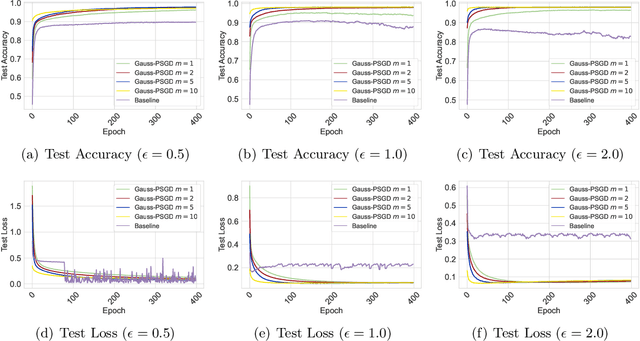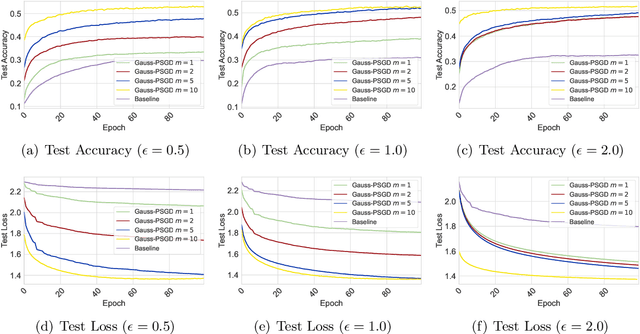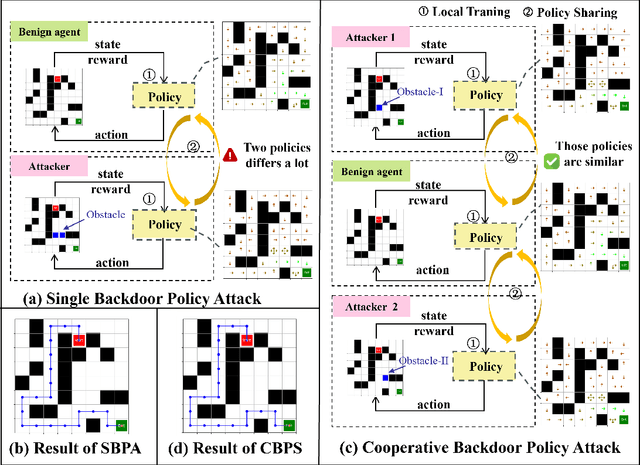Zuyuan Zhang
Structuring Value Representations via Geometric Coherence in Markov Decision Processes
Feb 03, 2026Abstract:Geometric properties can be leveraged to stabilize and speed reinforcement learning. Existing examples include encoding symmetry structure, geometry-aware data augmentation, and enforcing structural restrictions. In this paper, we take a novel view of RL through the lens of order theory and recast value function estimates into learning a desired poset (partially ordered set). We propose \emph{GCR-RL} (Geometric Coherence Regularized Reinforcement Learning) that computes a sequence of super-poset refinements -- by refining posets in previous steps and learning additional order relationships from temporal difference signals -- thus ensuring geometric coherence across the sequence of posets underpinning the learned value functions. Two novel algorithms by Q-learning and by actor--critic are developed to efficiently realize these super-poset refinements. Their theoretical properties and convergence rates are analyzed. We empirically evaluate GCR-RL in a range of tasks and demonstrate significant improvements in sample efficiency and stable performance over strong baselines.
Manifold-Constrained Energy-Based Transition Models for Offline Reinforcement Learning
Feb 02, 2026Abstract:Model-based offline reinforcement learning is brittle under distribution shift: policy improvement drives rollouts into state--action regions weakly supported by the dataset, where compounding model error yields severe value overestimation. We propose Manifold-Constrained Energy-based Transition Models (MC-ETM), which train conditional energy-based transition models using a manifold projection--diffusion negative sampler. MC-ETM learns a latent manifold of next states and generates near-manifold hard negatives by perturbing latent codes and running Langevin dynamics in latent space with the learned conditional energy, sharpening the energy landscape around the dataset support and improving sensitivity to subtle out-of-distribution deviations. For policy optimization, the learned energy provides a single reliability signal: rollouts are truncated when the minimum energy over sampled next states exceeds a threshold, and Bellman backups are stabilized via pessimistic penalties based on Q-value-level dispersion across energy-guided samples. We formalize MC-ETM through a hybrid pessimistic MDP formulation and derive a conservative performance bound separating in-support evaluation error from truncation risk. Empirically, MC-ETM improves multi-step dynamics fidelity and yields higher normalized returns on standard offline control benchmarks, particularly under irregular dynamics and sparse data coverage.
Geometry of Drifting MDPs with Path-Integral Stability Certificates
Jan 29, 2026Abstract:Real-world reinforcement learning is often \emph{nonstationary}: rewards and dynamics drift, accelerate, oscillate, and trigger abrupt switches in the optimal action. Existing theory often represents nonstationarity with coarse-scale models that measure \emph{how much} the environment changes, not \emph{how} it changes locally -- even though acceleration and near-ties drive tracking error and policy chattering. We take a geometric view of nonstationary discounted Markov Decision Processes (MDPs) by modeling the environment as a differentiable homotopy path and tracking the induced motion of the optimal Bellman fixed point. This yields a length-curvature-kink signature of intrinsic complexity: cumulative drift, acceleration/oscillation, and action-gap-induced nonsmoothness. We prove a solver-agnostic path-integral stability bound and derive gap-safe feasible regions that certify local stability away from switch regimes. Building on these results, we introduce \textit{Homotopy-Tracking RL (HT-RL)} and \textit{HT-MCTS}, lightweight wrappers that estimate replay-based proxies of length, curvature, and near-tie proximity online and adapt learning or planning intensity accordingly. Experiments show improved tracking and dynamic regret over matched static baselines, with the largest gains in oscillatory and switch-prone regimes.
Tail-Risk-Safe Monte Carlo Tree Search under PAC-Level Guarantees
Aug 07, 2025Abstract:Making decisions with respect to just the expected returns in Monte Carlo Tree Search (MCTS) cannot account for the potential range of high-risk, adverse outcomes associated with a decision. To this end, safety-aware MCTS often consider some constrained variants -- by introducing some form of mean risk measures or hard cost thresholds. These approaches fail to provide rigorous tail-safety guarantees with respect to extreme or high-risk outcomes (denoted as tail-risk), potentially resulting in serious consequence in high-stake scenarios. This paper addresses the problem by developing two novel solutions. We first propose CVaR-MCTS, which embeds a coherent tail risk measure, Conditional Value-at-Risk (CVaR), into MCTS. Our CVaR-MCTS with parameter $\alpha$ achieves explicit tail-risk control over the expected loss in the "worst $(1-\alpha)\%$ scenarios." Second, we further address the estimation bias of tail-risk due to limited samples. We propose Wasserstein-MCTS (or W-MCTS) by introducing a first-order Wasserstein ambiguity set $\mathcal{P}_{\varepsilon_{s}}(s,a)$ with radius $\varepsilon_{s}$ to characterize the uncertainty in tail-risk estimates. We prove PAC tail-safety guarantees for both CVaR-MCTS and W-MCTS and establish their regret. Evaluations on diverse simulated environments demonstrate that our proposed methods outperform existing baselines, effectively achieving robust tail-risk guarantees with improved rewards and stability.
Second-Order Convergence in Private Stochastic Non-Convex Optimization
May 21, 2025

Abstract:We investigate the problem of finding second-order stationary points (SOSP) in differentially private (DP) stochastic non-convex optimization. Existing methods suffer from two key limitations: (i) inaccurate convergence error rate due to overlooking gradient variance in the saddle point escape analysis, and (ii) dependence on auxiliary private model selection procedures for identifying DP-SOSP, which can significantly impair utility, particularly in distributed settings. To address these issues, we propose a generic perturbed stochastic gradient descent (PSGD) framework built upon Gaussian noise injection and general gradient oracles. A core innovation of our framework is using model drift distance to determine whether PSGD escapes saddle points, ensuring convergence to approximate local minima without relying on second-order information or additional DP-SOSP identification. By leveraging the adaptive DP-SPIDER estimator as a specific gradient oracle, we develop a new DP algorithm that rectifies the convergence error rates reported in prior work. We further extend this algorithm to distributed learning with arbitrarily heterogeneous data, providing the first formal guarantees for finding DP-SOSP in such settings. Our analysis also highlights the detrimental impacts of private selection procedures in distributed learning under high-dimensional models, underscoring the practical benefits of our design. Numerical experiments on real-world datasets validate the efficacy of our approach.
Network Diffuser for Placing-Scheduling Service Function Chains with Inverse Demonstration
Jan 10, 2025Abstract:Network services are increasingly managed by considering chained-up virtual network functions and relevant traffic flows, known as the Service Function Chains (SFCs). To deal with sequential arrivals of SFCs in an online fashion, we must consider two closely-coupled problems - an SFC placement problem that maps SFCs to servers/links in the network and an SFC scheduling problem that determines when each SFC is executed. Solving the whole SFC problem targeting these two optimizations jointly is extremely challenging. In this paper, we propose a novel network diffuser using conditional generative modeling for this SFC placing-scheduling optimization. Recent advances in generative AI and diffusion models have made it possible to generate high-quality images/videos and decision trajectories from language description. We formulate the SFC optimization as a problem of generating a state sequence for planning and perform graph diffusion on the state trajectories to enable extraction of SFC decisions, with SFC optimization constraints and objectives as conditions. To address the lack of demonstration data due to NP-hardness and exponential problem space of the SFC optimization, we also propose a novel and somewhat maverick approach -- Rather than solving instances of this difficult optimization, we start with randomly-generated solutions as input, and then determine appropriate SFC optimization problems that render these solutions feasible. This inverse demonstration enables us to obtain sufficient expert demonstrations, i.e., problem-solution pairs, through further optimization. In our numerical evaluations, the proposed network diffuser outperforms learning and heuristic baselines, by $\sim$20\% improvement in SFC reward and $\sim$50\% reduction in SFC waiting time and blocking rate.
Cooperative Backdoor Attack in Decentralized Reinforcement Learning with Theoretical Guarantee
May 24, 2024


Abstract:The safety of decentralized reinforcement learning (RL) is a challenging problem since malicious agents can share their poisoned policies with benign agents. The paper investigates a cooperative backdoor attack in a decentralized reinforcement learning scenario. Differing from the existing methods that hide a whole backdoor attack behind their shared policies, our method decomposes the backdoor behavior into multiple components according to the state space of RL. Each malicious agent hides one component in its policy and shares its policy with the benign agents. When a benign agent learns all the poisoned policies, the backdoor attack is assembled in its policy. The theoretical proof is given to show that our cooperative method can successfully inject the backdoor into the RL policies of benign agents. Compared with the existing backdoor attacks, our cooperative method is more covert since the policy from each attacker only contains a component of the backdoor attack and is harder to detect. Extensive simulations are conducted based on Atari environments to demonstrate the efficiency and covertness of our method. To the best of our knowledge, this is the first paper presenting a provable cooperative backdoor attack in decentralized reinforcement learning.
Collaborative AI Teaming in Unknown Environments via Active Goal Deduction
Mar 22, 2024Abstract:With the advancements of artificial intelligence (AI), we're seeing more scenarios that require AI to work closely with other agents, whose goals and strategies might not be known beforehand. However, existing approaches for training collaborative agents often require defined and known reward signals and cannot address the problem of teaming with unknown agents that often have latent objectives/rewards. In response to this challenge, we propose teaming with unknown agents framework, which leverages kernel density Bayesian inverse learning method for active goal deduction and utilizes pre-trained, goal-conditioned policies to enable zero-shot policy adaptation. We prove that unbiased reward estimates in our framework are sufficient for optimal teaming with unknown agents. We further evaluate the framework of redesigned multi-agent particle and StarCraft II micromanagement environments with diverse unknown agents of different behaviors/rewards. Empirical results demonstrate that our framework significantly advances the teaming performance of AI and unknown agents in a wide range of collaborative scenarios.
 Add to Chrome
Add to Chrome Add to Firefox
Add to Firefox Add to Edge
Add to Edge